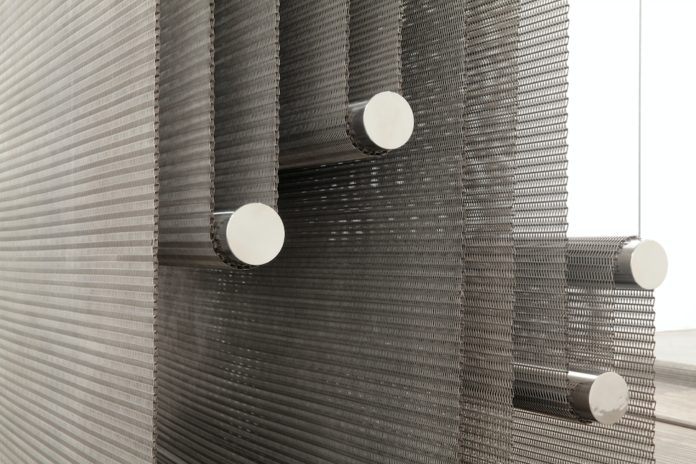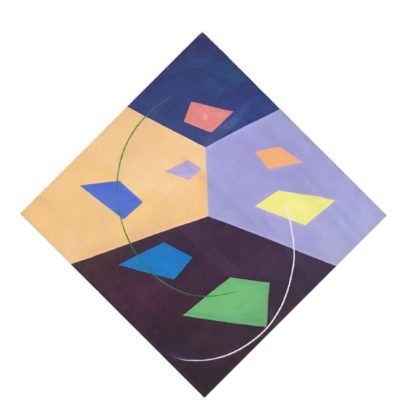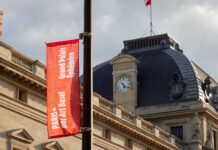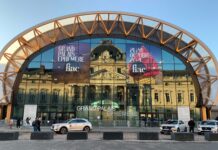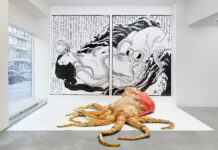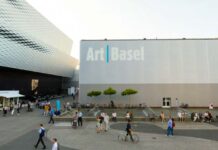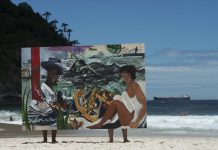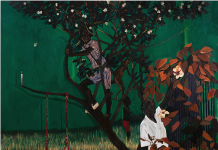T
he Miami Beach edition of the traditional Art Basel fair has begun to heat up the market since it announced the new section Meridians in October, which will feature large-scale works. Nara Roesler Gallery is the only Brazilian to participate in this premiere, with a work by Artur Lescher. There are 34 works exhibited in the section, curated by Magalí Arriola, critic and curator, current director of the Museo Tamayo in Mexico. All works can be seen during the fair, that takes place in December 5-8 at the Miami Beach Convention Center. Meridians will be shown in the Grand Ballroom.
In addition to Lescher, works by Argentine artist Luciana Lamothe, Cuban artists Flavio Garciandía and Ana Mendieta, Colombian artist Antonio Suárez Londoño and Mexicans artists Jose Dávila, Pepe Mar, and Tercerunquinto can be seen in Meridians. The curatorship did not follow a specific theme for the chosen works: “Given the uniqueness of each project, Meridians articulates a very organic exchange of ideas and positions, unveiling conceptual overlaps, themes and interests that have emerged from this year’s strong selection of projects”, Arriola said during the project announcement.
In the exhibitors sectors, the Brazilian galleries appear as usual. The galleries Jaqueline Martins and Luciana Brito announced that they will make a joint participation in the fair, with works by the artists Robert Barry, Lydia Okumura, Augusto de Campos and Geraldo de Barros. It is the first time in the history of the fair that two galleries are sharing a booth in the main event space, provoking dialogues between artists who they represent: “The joint project seeks to create a space where both intersections and differences between their productions can be perceived by visitors”, says the galleries’ report.
Anita Schwartz Art Gallery, from Rio de Janeiro, will make a solo stand with works by the artist Paulo Vivacqua. Babbling Forms and Corale work as musical poems, says the gallery owner. “They deal with the same starting point: the speakers, which set a counterpart to each other”, she explains. “While Corale emphasizes form, with a composition of sculptures made from color speakers in nuances of color, Babbling Forms is deeply involved with the function of language, where ‘pre-verbal’ sounds talk”. Their interaction focuses on artistic inquiry into how the preconceived ideas of sculpture disappear and shift in unexpected directions. The artist considers the transmission of sound and silence as a musical state that acquires concreteness and presence in space – music as sculpture.
In turn, Casa Triângulo will present some of its artists to the fair, but the gallerists bet on a pair of artists, Ascânio MMM and Mariana Palma. According to the gallery’s director, Camila Siqueira, Ascânio sculptures produced between the 60’s and 70’s will be shown. “To reinforce the historical importance of his production during this period”, she says. In 2020, Mariana Palma will have an individual at the Tomie Ohtake Institute. Thus, the gallery also focuses on her paintings that exploits an exuberance of colors.
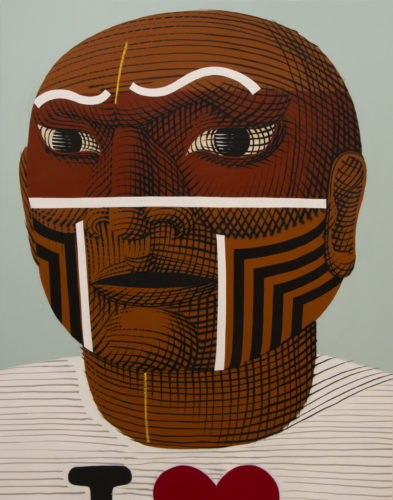
Arround
Kogan Amaro Gallery debuts at SCOPE, one of the main fairs of the contemporary circuit, which reaches its 19th edition in 2019. Gallery director Marlise Corsato researched other fairs in Miami during her visits to Art Basel. As an international fair that has been in the market for a long time, already established, but with a younger, lighter and more casual feel, Marlise bet on SCOPE for the gallery’s debut in a fair outside Brazil: “I felt it would be interesting for us to start at an international fair in this style”.
Daniel Mullen, Mundano, Nunca and Samuel de Saboia are the four artists who will be at the booth of Kogan Amaro, the only Brazilian to participate in SCOPE. Mundano and Nunca will create some outdoor work in Miami, as both work with street art. The actions were thought to happen due to the participation in the fair, incorporating the artists to the city.

